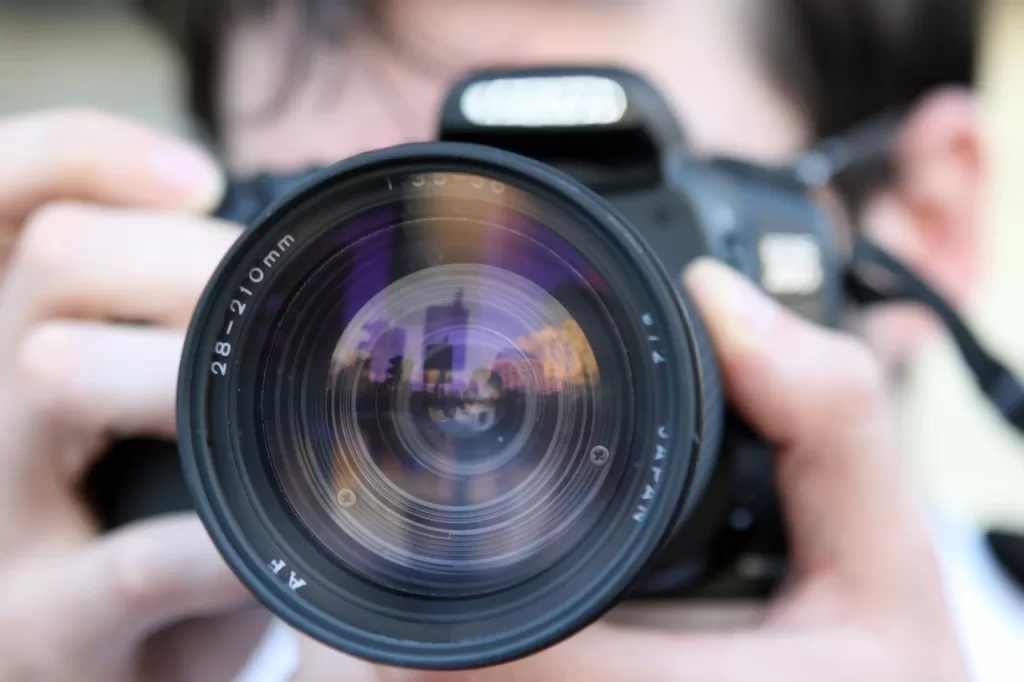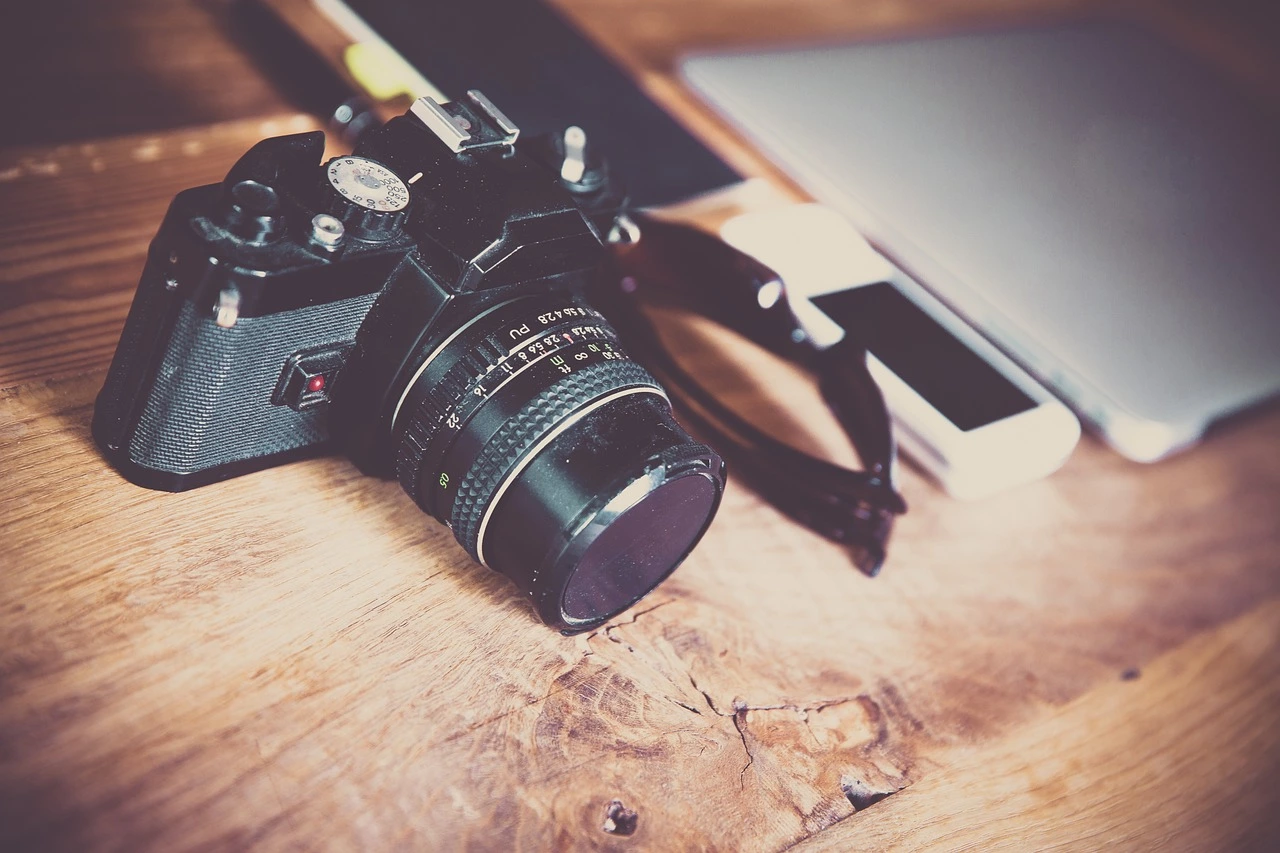Table of Contents
Introduction
Photography is an art that knows no boundaries when it comes to skill levels, and having the perfect tool can elevate your craft to new heights. If you are a photography enthusiast looking to move beyond your smartphone or compact camera, and delve into the realm of advanced digital cameras, fear not! This comprehensive guide will transform you from an amateur to an expert, helping you select the ideal digital camera that suits your needs and budget, ultimately revolutionizing your photography journey.
Factors to Consider When Choosing a Digital Camera

Image by Robert Owen-Wahl from Pixabay
1. Camera Types
There are three primary types of digital cameras to consider:
- DSLR (Digital Single-Lens Reflex): This type offers unparalleled image quality, the flexibility of interchangeable lenses, and advanced manual controls, making it a top choice for professional photographers and enthusiasts seeking ultimate control over their shots. Canon EOS 1500D DSLR + 18-55mm Lens + Original Accessories + Warranty
- Mirrorless Cameras: Combining compactness with high image quality, mirrorless cameras are known for their versatility and excellent performance. They are a popular choice for photographers who require top-notch results without the bulk of a DSLR. Sony Alpha A6700 Mirrorless Camera
- Point-and-Shoot Cameras: Simple, compact, and user-friendly, these cameras are an excellent option for beginners who seek hassle-free photography experiences.
2. Sensor Size
The size of a camera’s sensor significantly impacts image quality, low-light performance, and depth of field. To cater to professional-level photography, opt for a full-frame sensor. However, if you desire a balance between quality and portability, an APS-C sensor should suffice.
3. Megapixels
While an abundance of megapixels does not always guarantee superior quality, higher resolution can be advantageous for large prints and cropping flexibility. A camera with a resolution ranging from 16 to 24 megapixels is more than sufficient for most photographers.
4. Lens Compatibility
If you opt for an interchangeable lens camera, such as a DSLR or mirrorless, assess the availability and variety of lenses that align with your photography interests. Wide-angle, telephoto, and macro lenses are among the options worth considering.
5. ISO Range
A broad ISO range is vital for enhanced performance in various lighting conditions. Look for cameras with excellent low-light capabilities and minimal noise at high ISO settings.
6. Image Stabilization
Built-in image stabilization compensates for camera shake, resulting in sharper images, especially in situations where steady hands might be challenging. Some cameras offer in-body stabilization, while others stabilize specific lenses.
7. Autofocus System
A reliable and fast autofocus system is crucial, particularly for capturing moving subjects or shooting in dynamic environments. Look for cameras equipped with advanced autofocus technology to ensure accuracy and precision.
8. Video Capabilities
If you have a keen interest in videography, consider cameras with 4K recording capabilities and advanced video features like manual controls and image stabilization for professional-grade videos.
9. Battery Life
Battery life is a crucial factor, especially if you plan to shoot for extended periods or while traveling. A camera with a long-lasting battery ensures you won’t miss capturing precious moments.
10. Ergonomics and Handling
Visit a physical store to get a hands-on experience with the camera you are interested in. Assess its comfort and usability, as a camera that feels natural in your hands will encourage you to shoot more frequently and confidently.
Frequently Asked Questions (FAQs)
Q1: What is the best camera for a beginner photographer? A1: For beginners, we recommend starting with a good entry-level DSLR or mirrorless camera equipped with a kit lens. These cameras are easy to use and offer the flexibility needed for learning and experimentation. Fujifilm X-S20 Mirrorless Camera
Q2: Are digital cameras better than smartphones for photography? A2: Absolutely! Digital cameras surpass smartphones in terms of image quality, manual controls, and the ability to use interchangeable lenses. They are the preferred choice for serious photographers aiming to achieve professional results.
Q3: Which brand offers the best digital cameras? A3: Several reputable brands excel in producing digital cameras, including Canon, Nikon, Sony, Fujifilm, and Panasonic. Your choice should depend on your specific needs and budget, so research and compare the options to find the best fit.
Q4: Can I use my old film camera lenses on a digital camera? A4: In some cases, with the appropriate adapter, you can use old film camera lenses on modern digital cameras. However, note that certain functionalities may not be fully retained, so it’s essential to do your research before attempting this.
Conclusion
Congratulations! Armed with the knowledge from this comprehensive guide, you are now well-equipped to make the transition from an amateur photographer to a savvy expert in selecting the best digital camera for your needs. Remember to consider essential factors such as camera type, sensor size, lens compatibility, and video capabilities.
No matter your passion—be it landscapes, wildlife, portraits, or street photography—the right digital camera will empower you to capture stunning images and unlock your creative potential. Embrace the journey, experiment with your new camera’s features, and most importantly, enjoy the art of photography to the fullest. Happy shooting!
Picture Perfect: The Top 5 Digital Cameras of the Year Revealed!

